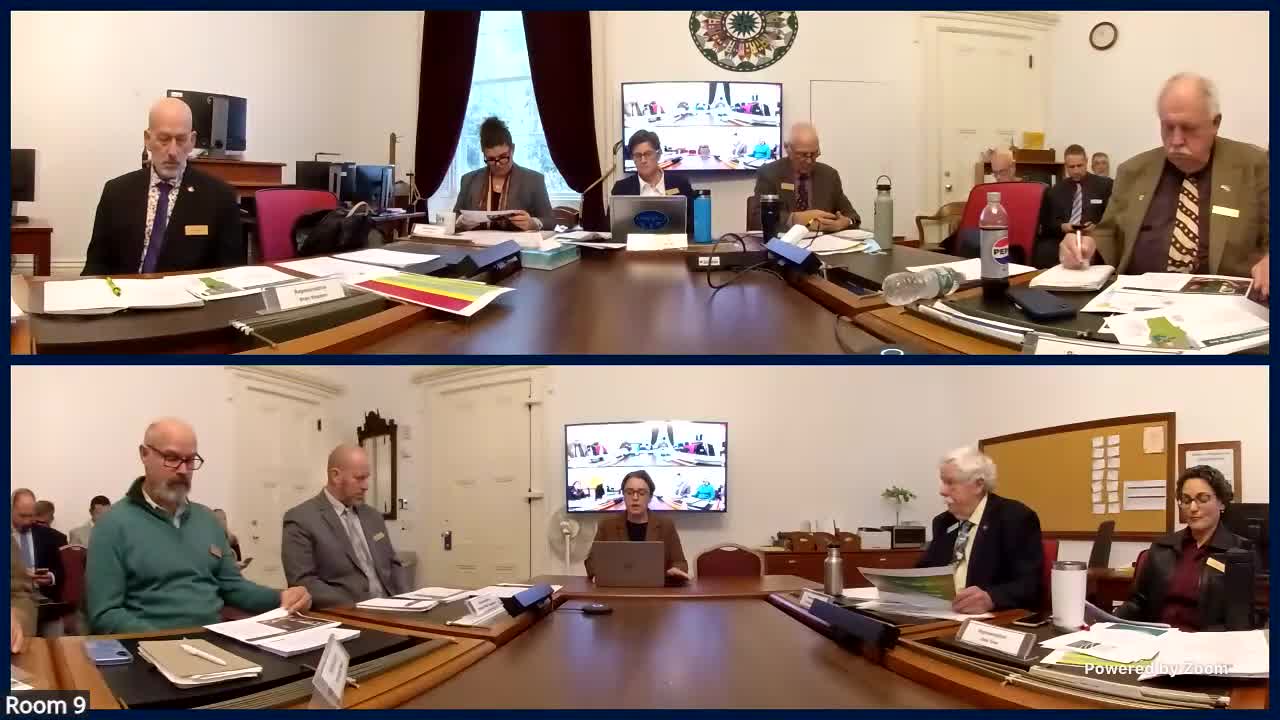Green Mountain Power and others keep resiliency and customer programs running while tracking federal changes
October 31, 2025 | Environment & Energy, HOUSE OF REPRESENTATIVES, Committees, Legislative , Vermont
This article was created by AI summarizing key points discussed. AI makes mistakes, so for full details and context, please refer to the video of the full meeting. Please report any errors so we can fix them. Report an error »

Representatives from Green Mountain Power, VEPSA, Burlington Electric and other utilities told the House committee that customer-facing programs and resiliency investments are continuing even as federal incentives and grant certainty ebb.
Candace Morgan, vice president at Green Mountain Power, described ongoing tier 3 incentives supporting more than 10,000 customers last year for heat pumps, electric vehicle rebates and commercial custom incentives. "That's continuing as part of the general state policy," Morgan said. She also outlined energy storage initiatives, including a lease program, a "bring-your-own-device" model and an ARPA-funded storage assistance program targeted to income-qualified customers with medical needs or frequent outages. Morgan said GMP has roughly 79 megawatts of flexible resources in its portfolio and uses those resources to balance the system; she pointed to an event last June when the portfolio helped avoid higher regional costs and "helped save our customers about $3,000,000."
Morgan described extensive storm-hardening in GMP's central and southern territory: "We have completed over 70 miles of underground and 39 miles of overhead storm hardening in the last year," she said, work GMP says improves reliability and reduces long-term costs for all customers.
Burlington Electric said it is stepping in to offset lost federal EV incentives by temporarily increasing its local EV rebate to $5,000 for general customers and $5,700 for income-qualified customers through 2026; the utility also owns and operates public EV chargers and had pursued a federal grant to expand that network. Efficiency Vermont cautioned that supply-chain constraints and rising project costs are affecting program delivery: average weatherization project costs rose from under $8,000 in 2020 to more than $12,000, and some customers are rushing to complete installs before federal credits change.
What's next: Utilities said they will continue state-backed programs and resiliency projects where funding and regulation permit, keep deploying storage and virtual power plant capabilities to manage peak loads, and coordinate with the Legislature on how to sustain incentives and programmatic flexibility if federal support does not resume.
Candace Morgan, vice president at Green Mountain Power, described ongoing tier 3 incentives supporting more than 10,000 customers last year for heat pumps, electric vehicle rebates and commercial custom incentives. "That's continuing as part of the general state policy," Morgan said. She also outlined energy storage initiatives, including a lease program, a "bring-your-own-device" model and an ARPA-funded storage assistance program targeted to income-qualified customers with medical needs or frequent outages. Morgan said GMP has roughly 79 megawatts of flexible resources in its portfolio and uses those resources to balance the system; she pointed to an event last June when the portfolio helped avoid higher regional costs and "helped save our customers about $3,000,000."
Morgan described extensive storm-hardening in GMP's central and southern territory: "We have completed over 70 miles of underground and 39 miles of overhead storm hardening in the last year," she said, work GMP says improves reliability and reduces long-term costs for all customers.
Burlington Electric said it is stepping in to offset lost federal EV incentives by temporarily increasing its local EV rebate to $5,000 for general customers and $5,700 for income-qualified customers through 2026; the utility also owns and operates public EV chargers and had pursued a federal grant to expand that network. Efficiency Vermont cautioned that supply-chain constraints and rising project costs are affecting program delivery: average weatherization project costs rose from under $8,000 in 2020 to more than $12,000, and some customers are rushing to complete installs before federal credits change.
What's next: Utilities said they will continue state-backed programs and resiliency projects where funding and regulation permit, keep deploying storage and virtual power plant capabilities to manage peak loads, and coordinate with the Legislature on how to sustain incentives and programmatic flexibility if federal support does not resume.
View full meeting
This article is based on a recent meeting—watch the full video and explore the complete transcript for deeper insights into the discussion.
View full meeting